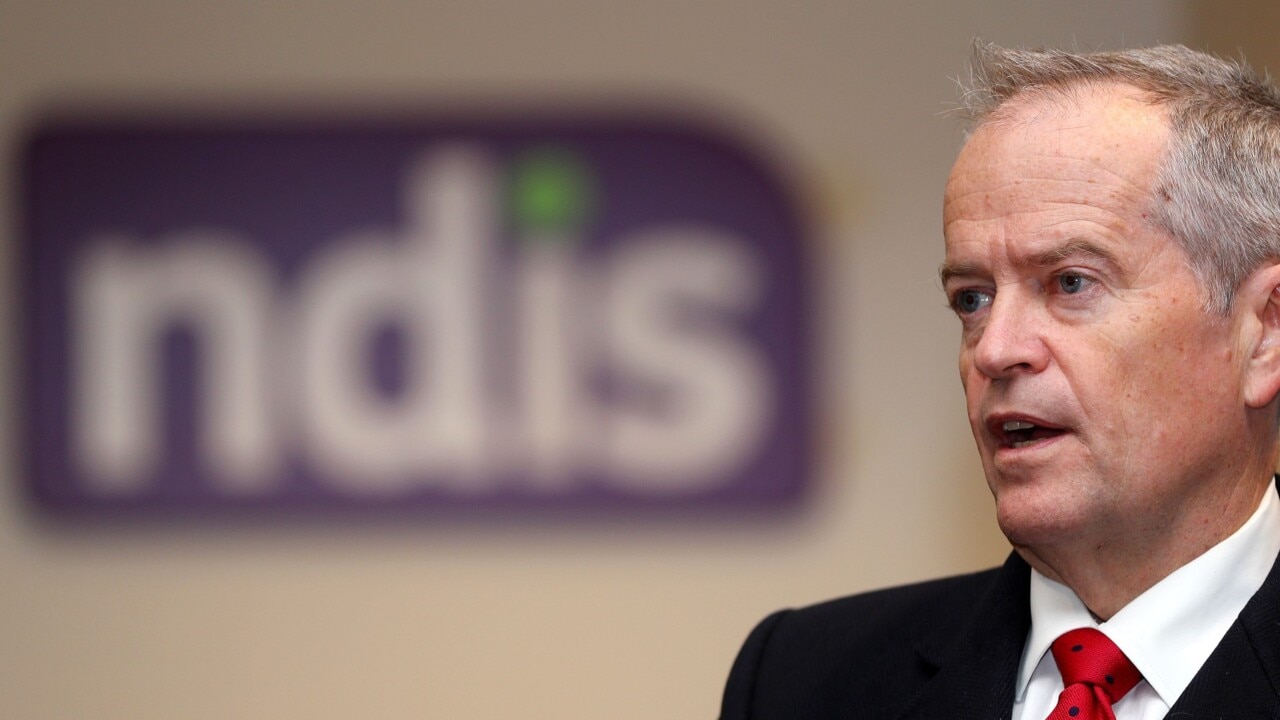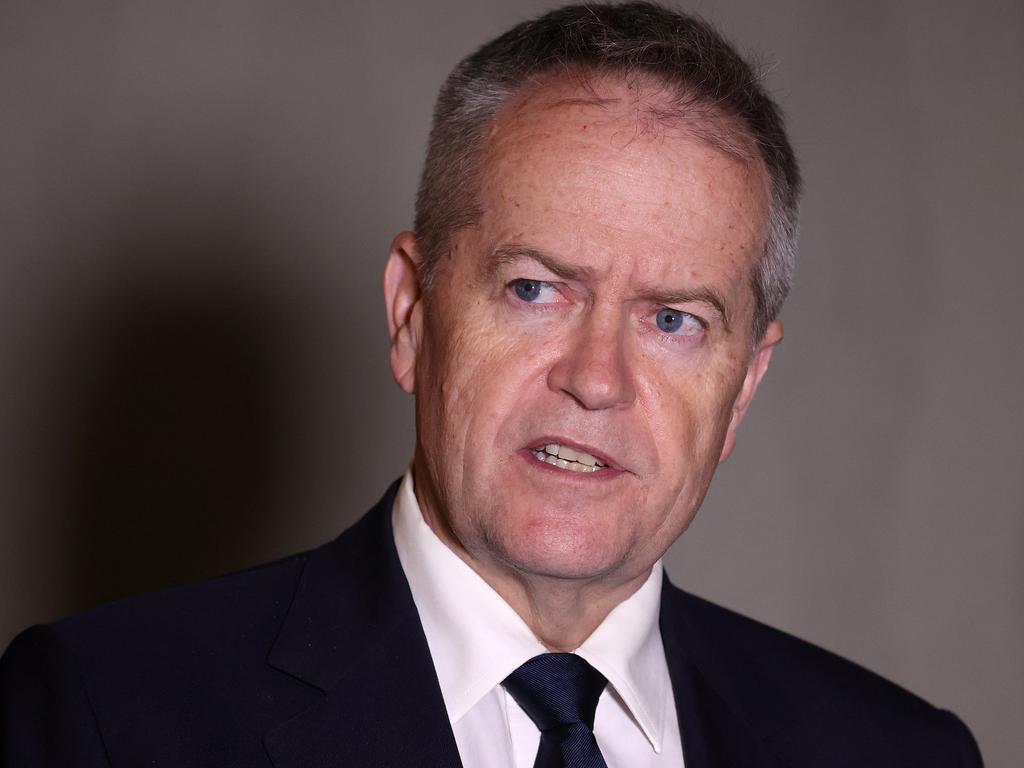Early intervention for infants with neurodiversity issues may flatten NDIS cost curve
Two new pilot programs are set to test if infants with neurodiversity issues can get the early support they need before they wind up on the NDIS.

The Albanese government is ramping up early intervention for babies as young as nine months showing signs of autism as it looks for ways to support vulnerable families and flatten the spiralling costs of the $35bn National Disability Insurance Scheme.
Social Services Minister Amanda Rishworth will announce on Wednesday two new pilots providing up to 1500 babies nine to 14 months old “showing early signs of neurodiversity” with programs that give parents play-based techniques to interact with their child when their brain is developing most rapidly.
The new programs, costing $22.1m over four years, add to an earlier pilot in Western Australia announced by NDIS Minister Bill Shorten last month for 700 infants showing signs of autism. The sites for the new pilots are yet to be finalised, with the government to explore proposals from interested states.
The three pilots address broad concerns that developmental disorders are not being detected early enough in infants, meaning interventions that can improve their long-term outcomes are being delivered too late.
But there will also be a keen focus on whether they divert young children from the NDIS by reducing their likelihood of an autism diagnosis later in childhood. Children with a diagnosis of autism are the fastest-growing cohort of NDIS participants, with one in 10 boys in Australia aged 5-7 currently on the scheme.
Last month a University of South Australia study into a 2021 trial run by the Telethon Kids Institute that forms the basis of the upcoming WA pilot found every dollar invested in early therapy for infants can return at least $3 to the NDIS, and save $75m for every 1000 children diverted from the scheme.

The two new pilots will be linked to the government’s Early Years Strategy, due for release in October, and its National Autism Strategy, which is still being developed, Ms Rishworth told The Australian.
“We know that early intervention matters, and ensuring there are effective, family-based practices for kids with initial signs of autism will make a difference,” she said.
“These pilots will build on work already under way to develop best-practice models for families to support their children’s development.
“They are not intended to ‘fix’ kids with autism. Rather the pilots will provide strengths-based and family-based intervention to improve the outcomes of young children and their families.”
The funding of the two new programs, through the Department of Social Services and not through the NDIS, where the WA pilot is funded, is a clear sign the Albanese government is looking to decouple early intervention for children with neurodivergent issues from a formal diagnosis of autism, which is often a pathway to NDIS entry.
The two new pilots will focus on vulnerable cohorts including CALD communities, First Nations families and infants in low socio-economic status areas.
Young children with autism are driving growth in NDIS participant numbers, currently around 600,000 overall, and scheme cost growth, budgeted to rise to $56bn by 2026-27. NDIS figures show that of the 20,477 new participants in the scheme in the December quarter, almost half (9813) were children younger than seven. More than half the 266,000 participants aged 18 and under have an autism diagnosis.
Treasurer Jim Chalmers has consistently flagged the need to moderate cost growth in the NDIS, the fastest-growing government spending program, for the sake of long-term budget sustainability, and national cabinet last month agreed to a target of 8 per cent scheme growth by 2026, compared to the current 14 per cent.
The federal budget committed $732m over four years to drive the change, including cracking down on fraud and waste, lifting capacity in the National Disability Insurance Agency, changing systems so NDIS plans are not reviewed as frequently and driving better value for money in purchasing services and equipment.
Mr Shorten said both the Department of Finance and the NDIS had crunched the numbers to conclude the new initiatives would achieve estimated savings of $15.3bn over the next four years and $74bn over the next decade, which would meet the new cost target.
He said the NDIS would remain demand-driven and not capped, and there would be no change to who is eligible to participate in the scheme.
“But I do think we need to do more early intervention so that the only off ramp for a child with a learning delay isn’t the NDIS,” Mr Shorten told ABC radio.

“There’s an absence of alternatives which is funnelling people to the NDIS. I don’t blame people, parents seeking to be on the NDIS. I mean, if you had a child with a developmental delay at three, you just want to look after your child.”
Ms Rishworth will meet on Wednesday with the new National Autism Strategy Oversight Council, which is gathering in person for the first time. With eight autistic members out of 10, the council is charged with ensuring the National Autism Strategy is informed by the experience of autistic people.
“The National Autism Strategy will form a whole-of-life plan to improve outcomes for all autistic Australians, spanning a number of key reform areas including healthcare, education and employment,” Ms Rishworth said.
Council co-chair Clare Gibellini said she was “pleased to see that the government recognises the need for diverse, autistic leadership to guide development of the National Autism Strategy”.








To join the conversation, please log in. Don't have an account? Register
Join the conversation, you are commenting as Logout